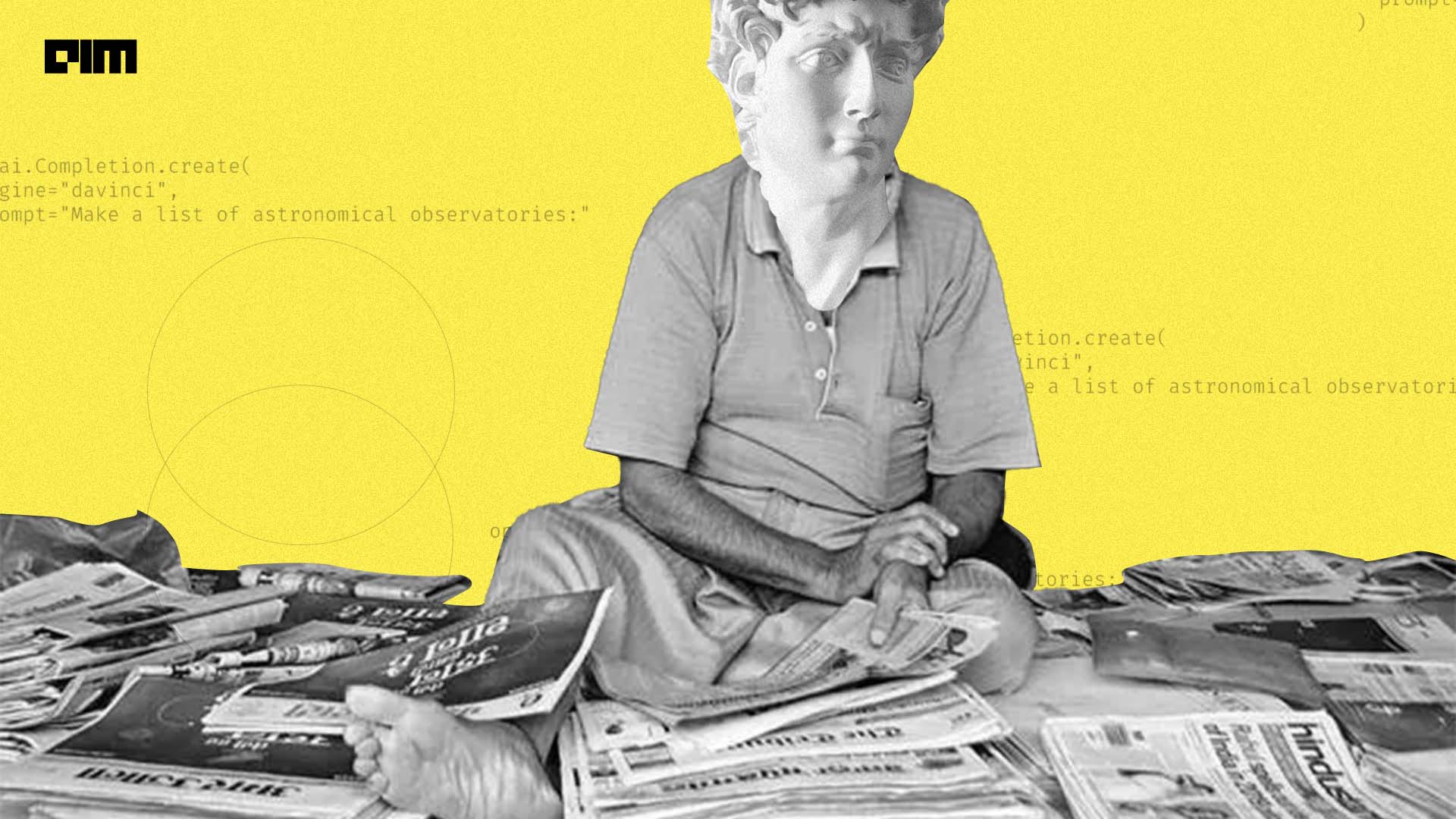
As the concerns around AI’s potential to replace jobs and the proliferation of AI-generated content across the internet continues, a new realisation is emerging, people are beginning to recognise the value of “original” content – the actual work generated by humans.
“Within a few years, artisanal “certified human-made” content is going to sell at a big premium to AI-generated content,” expressed Stanford professor Erik Brynjolfsson.
An example is the weaving industry of India. A lot of design and creation work is now being automated by machines, and even AI. This is posing a threat to a lot of artisanal and traditional weavers. But even though AI is getting better at this field as well, a lot of people still prefer traditional weaving over automated ones, due to the sheer lack of intricacy.
Read: The Silence of the Looms
Yann LeCun, the godfather of AI, says “exactly”, and explains this with the perfect example of how automated manufacturing has made handcrafted goods more valuable. Clearly, apart from geopolitical reasons, Indians also choose to not go for ‘Made in China’ products, as automation makes the products mundane, offering no new intrinsic value to each product.
Sure, you can create awesome images and texts and print them on T-shirts and mugs, it is only a matter of time when someone would be able to copy it ditto with the help of the same AI tools you used. Moreover, if you can make a business out of prompting Midjourney or ChatGPT, someone else can as well. What can never be replaced is the artisanal nature of the original hand-made products.
That’s right, within a few short years, we’ll witness a seismic shift where genuine human creativity will sell at a premium, leaving AI-generated content in the digital dust.
Why settle for AI-generated content, when you can have the imperfect perfection of human creation? Let’s face it, folks, AI can be predictable, robotic, and sometimes downright nonsensical. Sure, it may be capable of producing vast quantities of content at lightning speed, but it lacks the intangible qualities that make us laugh, cry, and ponder.
What if AI makes us stupid?
Just a few weeks back, the Writer’s Guild of America was protesting against the use of AI for writing scripts. Similarly, artists were furious against an artist who won a prize in an art competition using Midjourney.
Clearly, humans with the help of AI have been performing better at certain areas that include artistic domains. Sam Altman envisioned exactly this when he spoke about AI humans, “I am excited about a world where AI is an extension of human will, and an amplifier of our abilities.”
Furthermore, Altman during his visit to India was balled with a philosophical question about what has learnt about humans while working on AI. After taking some time to ponder upon it, he concluded saying, “There’s something strange and very important going on with humans and I really deeply hope that we preserve that.”
Now, with machines doing all our work, our minds would become numb and dumber each day, rendering us literally thoughtless of original ideas. For example, if a coder can build apps using OpenAI’s API and auto-code using Copilot that is able to make money for him, why would they want to build something from scratch? This eventually would lead to most of the apps in the future with the same features with AI doing half the work.
What can be the reason that AI is so good at what it does? The AI that these people are using to write and draw better than the artists is trained on the original artists’ works. That is where the creativity in art comes from.
On the other hand, Adam Yormark argues that this would just remove the low-to-medium quality products from the market that can be easily replicated with AI, while high-quality, in this case handcrafted, products will still be sold on the market as high-value.
What even is original?
1929 book argued: "People living in constant contact with machines are apt to worship precision, to regard human effort with contempt because of the factor of error, & to admire the machine because it is infallible"
BUT between 1910 and 1930 use of term “handmade” increased 64%! pic.twitter.com/aebfWRBDjx— Pessimists Archive (@PessimistsArc) January 30, 2023
Mark Twain famously said, “There is no such thing as a new idea.” This begs the question – isn’t the case with AI the same as with every technological revolution? People used to write using pen and paper, then print books. Then with computers, the need for pen and paper for authors completely vanished. Would we call everything digital today as original?
Probably yes. No one would deny the capabilities of AI and how it can assist people to do a job that would take a hundred people to do. But the creativity of the person is restricted till the person enters the prompt, the rest is handled by AI. Nothing artisanal about it. It is not called ‘art prompting’, but ‘prompt engineering’ anyway.
So while we look at the current AI built products as amazing, the future is very near when the customers would ask the sellers, “are you sure this is not built by AI?”
The post Soon Human Generated Content is Going to Sell At A Big Premium appeared first on Analytics India Magazine.